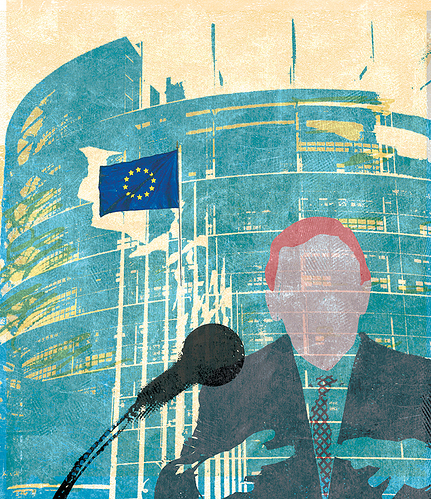This is an article by Niccolò Milanese with interesting passages about the inappropriateness of political institutions in the moment of political “metamorphosis” and civilizational and technological changes. This would call for civic engagement and experimentation and politicians who should “plan to work with citizens to do all the things the institutions may be incapable of achieving, how they plan to empower and enfranchise citizens to act outside of the elections.”
The full article can be found here, below its last three paragraphs:
It would be too easy to suppose that the emergence of a genuine ‘federal’ European politics would solve all these problems. Transnational lists elected to a more powerful parliament that becomes the central organ of a newly unified European body politic. Truly ‘European’ media covering European affairs for a pan-European audience. Perhaps that is eventually where we will end up. An alternative would be an effort to make a clearer division of competences between European and national authorities, with Europe ‘focusing on the big things’. But the pretence of being able to decide through rules what is a local phenomenon and what crosses borders is likely a smokescreen for ultimately allowing the market to divide and decide the European polity. And whether one’s preference for the future of the Union is a federal republic or a confederal system with multiple levels, there is the question of how to get there from where we currently are. Ultimately, the challenge facing Europe as a democratic polity is a smaller and more intensified version of a new and globally confusing, messy, intertwined and interdependent politics; the communicative and economic dialectic of integration and fragmentation in the European Union is a metaphor for what is happening across the planet.
In such a predicament, attempts to understand the current conjecture of European politics as a battle between nationalists and Europeanists, or between populists and the elite, between the centre and the radicals, or even between left and right might all be insufficient. All of those oppositions have some pertinence and each will reveal some tendencies. But it seems that politics as normal is no longer sufficient in a moment of technological and civilisational change. Our governments, parliaments and institutions will all struggle to govern, divided internally and unable to count on the unity of the population they are charged with representing. This is the moment of metamorphosis of the political body. The alternative to military force in a moment of such incapacity of politics is civic mobilisation and experimentation, and this implies enlarging our vision of the political scene outside of the institutions. The crucial question to ask of the candidates for the European Parliament may therefore be less about what their plans are for inside the institutions, but in what ways they plan to work with citizens to do all the things the institutions may be incapable of achieving, how they plan to empower and enfranchise citizens to act outside of the elections. This is not a politically neutral question: plans to decimate, undermine or privatise the cultural, environmental and social structures and institutions which give citizens collective capacity are a form of war on our future, as are attempts to create boundaries and obstacles to such collaboration.
All in all, the political incapacity of the European institutions which led to the financial crisis being unresolved and exploited by capital, the same cynicism which caused migrants to be blamed and left to die for an artificial crisis from which others profit, may continue for some time yet. In the meantime, from a position at once of resistance and of an avant-garde, perhaps more and more of us citizens will need to learn that really ‘taking back control’ does not mean the return to a sovereign country, as the Brexiteers promised, but throwing ourselves into the uncertainty of working and experimenting together across the multiplying borders, inventing a new politics as we do so. Maybe on that other stage, usually out of the media spotlight and away from the ballot box – but much closer to our everyday life – is where the real drama is taking place.
Image source: https://www.greeneuropeanjournal.eu/the-end-of-sovereignty-as-we-knew-it/
